How often you should clean your everyday items REVEALED!
Experts have revealed how often we should be washing our bedding, towels and bras, and even changing our mattresses, and the results are going to leave you feeling pretty grim...
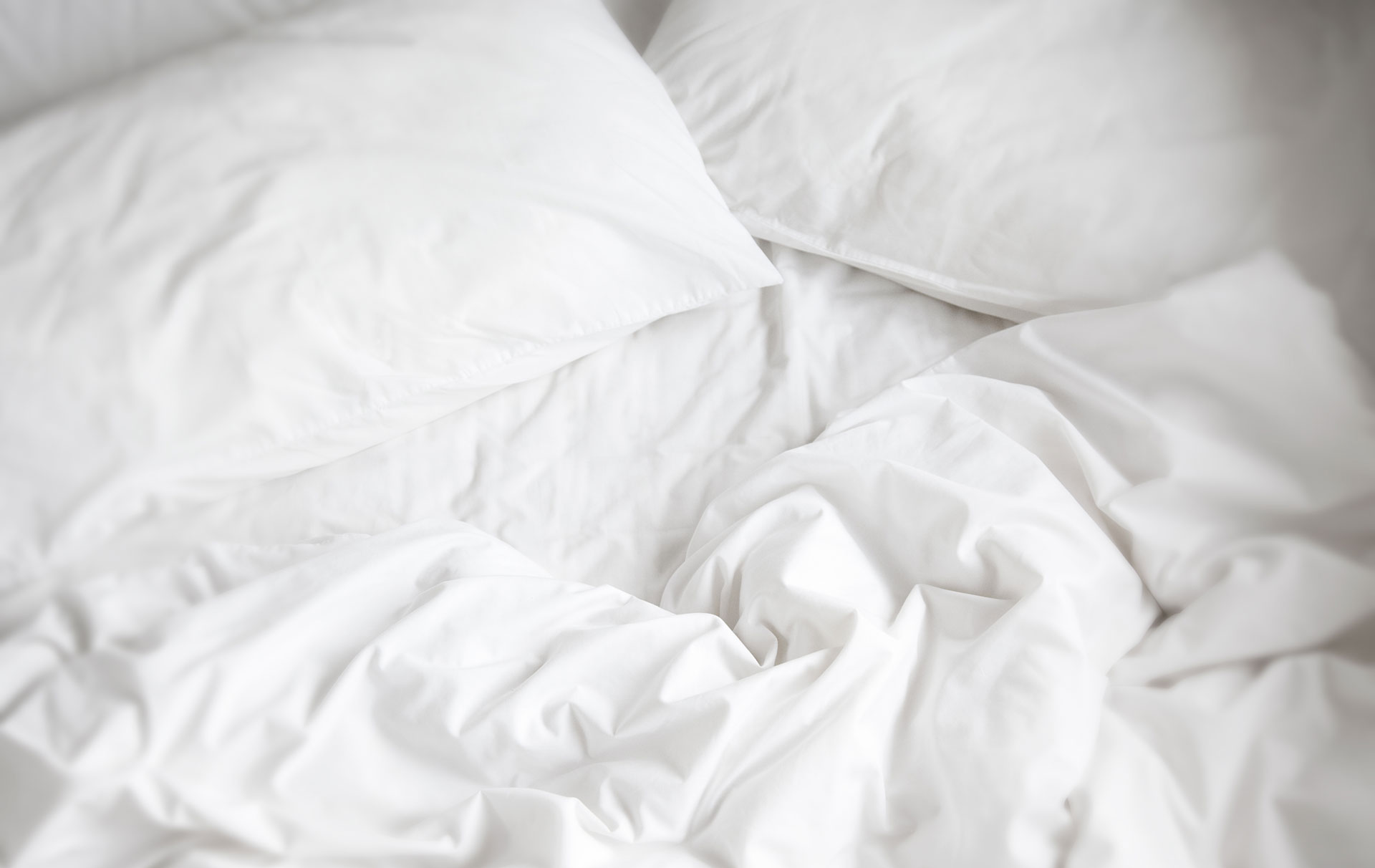
Parenting advice, hot topics, best buys and family finance tips delivered straight to your inbox.
You are now subscribed
Your newsletter sign-up was successful
We like to think we keep our homes pretty clean (no easy feat when you have kids, pets and a partner running around), but here's how often you actually need to clean your everyday items...
While we feel like we're in a never ending stream of washing, scientists are now saying this probably isn't enough to combat the amount of bacteria around our homes. Thanks to a recent study looking into just how filthy everyday objects can be, we were left feeling extremely grubby and wondered... is there such a thing as being TOO clean?
You've probably wondered how often should you change your sheets, how often should you clean you phone (which we touch up to 150 times a day!), your bras, jeans, tea towels, pjs and now even our mattresses. These are just some of the items that are, according to a microbiologist and other experts, teeming with bacteria and germs. So, how often should we be cleaning - or ditching - these everyday items?
How often should you clean your everyday items?
1. Hand towels
Swap: Every two uses Quite the same way it works with bathroom towels, whenever we pat our freshly washed hands dry, we're just slathering a lot of harmful bacteria onto them all over again.
Quite often, we're not washing our hands properly, so whatever is left on them gets transferred onto hand towels, which then make a perfect breeding ground for bacteria to thrive - thanks to its moistness and texture. It's a nasty cycle, so swap out your hand towel every two days to put an end to it!

2. Bathroom towels
Clean: Every three or four uses
Despite only being used against your already clean body, towels need to be washed much more regularly than you may think.
Parenting advice, hot topics, best buys and family finance tips delivered straight to your inbox.
Cleaning expert, Ralitsa Prodavova, has told the Metro they really need to wash towels after three to four uses. "Every time you use your towel to scrub your body, dead skin cells cling to the material and linger there. If you get a musty smell when you bring the towel up to your nose, that's bacteria growing on the towel itself."
The expert continued as to why getting into a ritual of regularly washing towels is so important. "Because towels are often damp and warm, they're the perfect breeding ground for bugs and germs. It's why you should keep on top of the cleaning schedule."
Failing to wash your towels regularly enough could also cause skin irritation and breakouts.
Candice Brown, specialist skin aesthetician spoke of this risk to Metro, adding, "It's long been thought that drying your face with a dirty towel can lead to acne outbreaks, in the same way that not changing your pillow case regularly can have the same effect. When you dry your face, you leave tiny amounts of oil, dirt and make-up deritus on it."
She continued:, "The towel becomes laced with bacteria. And then, later that day, you smear it all back on your face the next time you dry it, transferring Bactria to your pores encouraging pimples and causing irritation."
So even if it means investing in an extra towel or two to swap over when you run your other ones through the wash, it's well worth it to make sure they stay nice and clean. Also make sure to wash at a high temperature to kill bacteria!
3. Tea towels
Clean: Every day We all know our tea towels aren't squeaky clean after cooking, but a new study has found that they could actually cause food poisoning!
Researchers from the University of Mauritius looked at 100 towels that were used repeatedly for a month. Tea towels that were used for multiple jobs were more likely to have bacteria such as E.coli on them.
In fact, 49 per cent of the towels had bacterial growth and 36.7 per cent grew coliform bacteria, a group that includes E.coli.
The majority of E.coli bacteria are harmless but some variants can cause serious food poisoning. Tea towels from meat-eating households had significantly higher cases of Coliform bacteria and staphylococcus being found.
Dr Susheela Biranjia-Hurdoyal, lead author of the study, warns, "Humid towels and multipurpose usage of kitchen towels should be discouraged. Bigger families with children and elderly members should be especially vigilant to hygiene in the kitchen."
You should aim to replace your tea towels every single day, or every time you cook. It could be a good idea to switch to using kitchen roll to dry your hands or clean up spills to minimise your risk of contamination. Food for thought indeed...
4. Cuddly toys
Clean: Once a week
Soft toys can act as a breeding ground for all sorts of bugs and bacteria. Although it might be tricky to prise the toy out of your child's hands, if they take it everywhere they go it's important to clean it once a week. Lots of soft toys can be put in the washing machine but check the label. If the toy is too fragile pop it in the freezer for a couple of hours, ideally overnight, to kill off any dust mites and bed bugs.
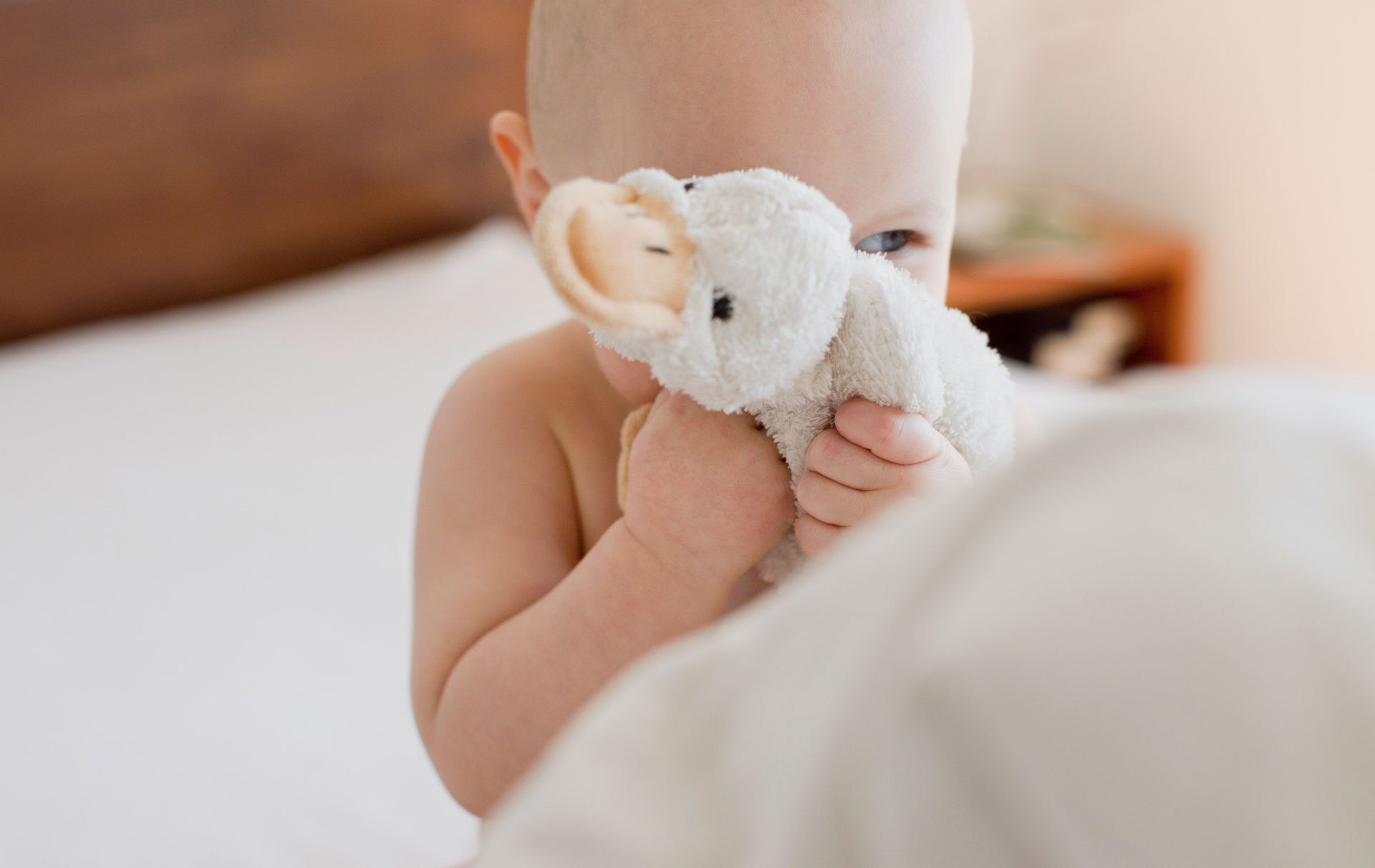
5. Kitchen sponge
Clean: Every day and replace once a week You might have thought your kitchen sponge can't be that dirty if it's used to clean all your pots and pans. However, after touching all those dirty kitchen counter-tops, crockery and chopping boards, as well as being left in dirty warm water, kitchen sponges can actually get pretty filthy. In fact, the very thing you use to wash up with is one of the dirtiest thing in your home!
According to Good Housekeeping expert Caroline Bloor, any cloths and sponges used to clean up in the kitchen should be thrown away and replaced every week. Not only that, they need a thorough clean rinse every day.
Most of us are probably guilty of letting our sponges live in the sink a little bit too long, but according to a study, sponges can contain up to 10 million bacteria per square inch. Just to put that in some context, that's actually dirtier than your toilet...
Researchers also found that cleaning your sponge in ineffective is getting rid of bacteria, so the best way to make sure you're not inviting unwanted diseases like food poisoning and cholera into your kitchen is to really replace your sponges once a week.
6. Underwear
We've all got a favourite pair that we become attached to, but how often should we really be replacing our pants? According to lingerie expert Maria Ryan, General Manager at DORINA UK, it's more often than most of us probably do...
Speaking to OK! Online, Maria said, "Women who wear more synthetic underwear (such as polyester, satin and lace), should change their pants every three to four months. They're not as breathable as other materials such as cotton and silk."
If you do stick to cotton underwear, she still recommends that you refresh your collection every six months, adding, "In general, every woman should consider replacing their underwear whenever they do a seasonal wardrobe make over, so around every six months."
7. Fabric lunch boxes
Clean: After every use
A study has found that 73% of fabric lunchboxes contain harmful bacteria such as mould and enterococci. The research by e-cloth showed that lunchboxes are simply being brushed out for crumbs and excess food but not properly cleaned, which can lead to bacteria breeding that could cause itchy eyes, coughs, asthma or food poisoning.
When cleaning your little one's pack up, ensure you wash your own hands first and then give the box a good wipe down with white wine vinegar to disinfect it. You can even sprinkle some bicarbonate of soda and then leave it overnight to remove any odours.
8. Re-usable shopping bags
Clean: Every few uses
Tote bags and canvas bags used for groceries rarely see the inside of the washing machine, unless they've got horrible spills on them. However, Science Is Us reports that 99% of shopping bags contain coliform, or faecal matter, and E.coli.
Considering the fact that we put raw fruit and veg in them, and also meat and fish, having all of that bacteria swishing around in there is pretty unsettling. So, next time you've got a load of laundry, toss your canvas bag in there!
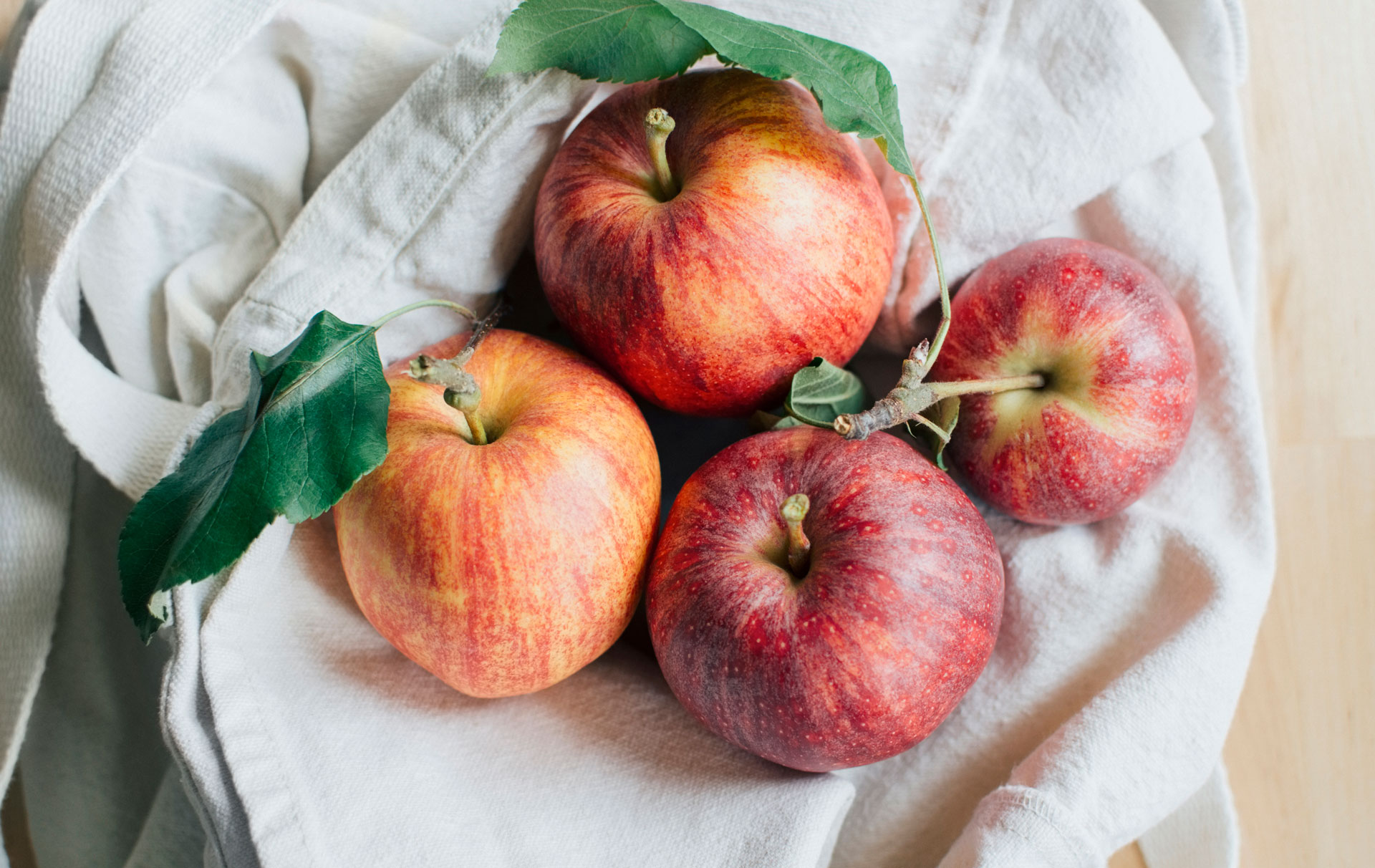
9. Tupperware
Ditch: Every three months
We use them everyday for packed lunches and dinner leftovers, but these plastic containers aren't meant to be with us all year round.
Apparently, Tupperware boxes harbour a lot of chemicals such as BPA, BPS and phthalates, according to Hassle.com. Luckily, they're not too pricey to replace!
10. Emery boards
Ditch: Every three uses Wooden or paper nail files are almost impossible to clean, and are meant to be thrown away frequently. Dr Andrew Wright told the Daily Mail that if an unclean board is used on a split or lifted nail, then an infection could occur. You should also avoid sharing them, as infections can spread between people.
So, chuck your file out every three uses, or buy a glass nail file as it's not porous and can be washed easily using very hot water.
11. Dish cloths
Ditch: Every week Yes, not even your dish cloth, which gets routinely covered in antibacterial spray, is safe.
When you drop your cloth by the sink after every use, it gives bacteria the chance to breed very quickly. A study revealed that 89% of dishcloths contain E.coli, which can sometimes be deadly to small children and elderly people.
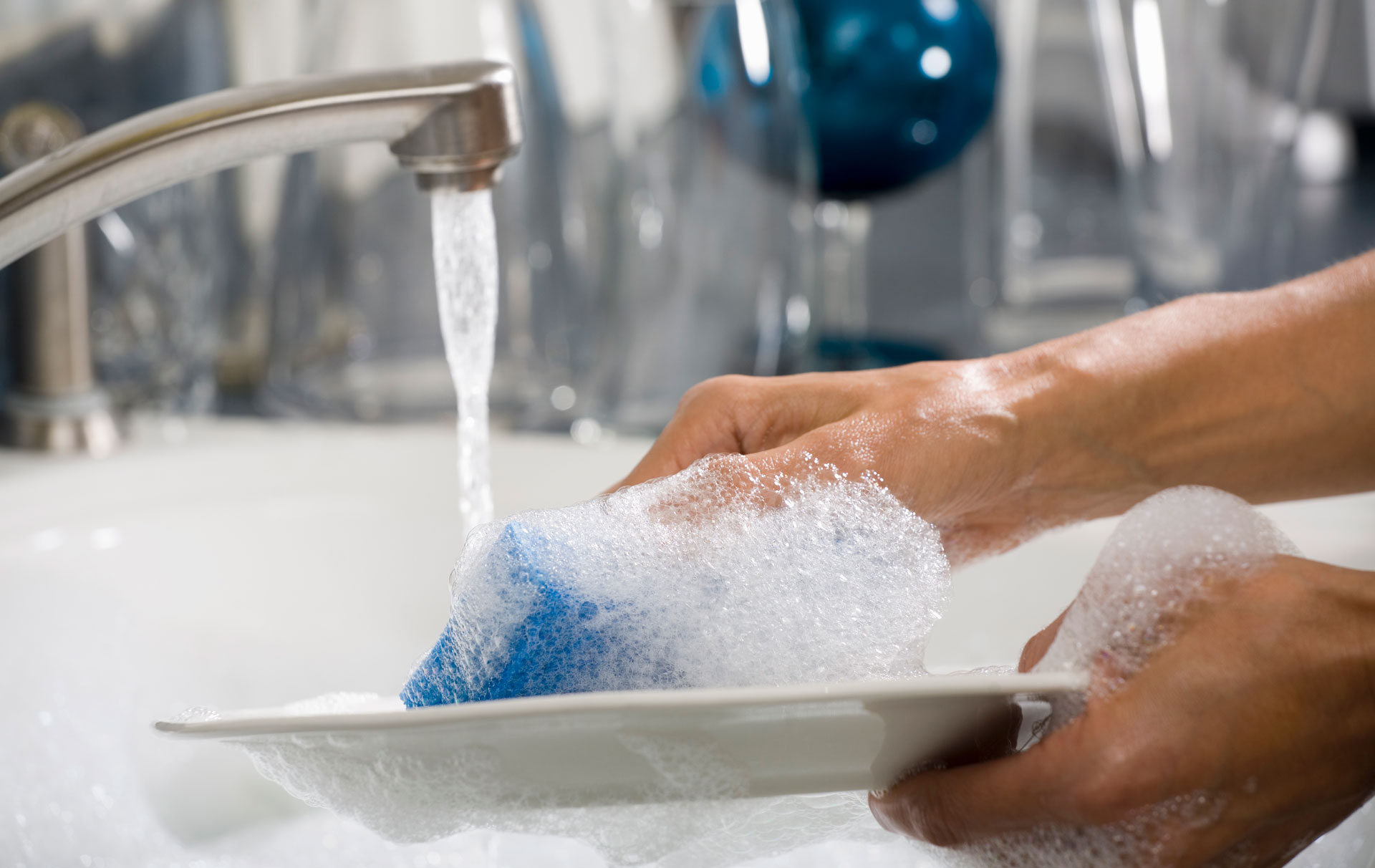
12. Hair straighteners
Ditch: Every four years Maybe this will make you think twice before investing in some pricey tongs! GHD education manager Robert Kovacs told Mamamia that old straighteners can do even more damage to your hair.
"The condition of your hair may be affected. It can cause dry and split ends, and lack of shine," he said. "Like all electrical tools, how long they last depends on how often you use them but we would suggest no longer than four years."
13. Chopping board
Ditch: Every 12 months They're used so frequently for so many different types of food, including raw meat and fish, but hands up if you replace your chopping boards every year?! Us neither...
Apparently, wooden boards are the worst culprits for harbouring bacteria - studies have shown that they can host 200% more faecal bacteria than a toilet seat.
So, replace your boards once a year, especially if they've got food stains, deep crevices or cracks, which are lovely little hiding spots for nasty germs.
14. Wooden spoons
Ditch: Every five years Wood isn't the best material for keeping bacteria at bay, it seems! As it's more porous than metal or plastic, there are more nooks and crannies for germs to get in, multiply and hide from frequent washing.
Like wooden boards, wooden spoons carry an E.coli risk - and need to be replaced immediately if they become cracked. Also, if any part of them turns dark or softer, it could mean that the wood is rotting. Gross!
15. Razors
Ditch: Every five to seven uses Dermatologist Whitney Bowe told Refinery29 that as soon as a razor's been used a few times, it's already been exposed to bacteria - especially if you keep it in the shower!
According to Whitney, "leaving it in the wet, dewy shower will cause the blade to rust much faster, and will also leave it open to being exposed to bacteria much more. Any tugging or nicking of the skin should tell you it's time to toss it."
That means that those nasty little red bumps are a sign that your razor could be covered in bacteria. Why? Whenever you shave, you're making tiny cuts in your skin, which any bacteria lingering on your razor can enter and infect.
Of course, if your razor is rusty or just isn't doing its job, it's long overdue a toss in the bin! You can extend the life of your blade by rinsing it properly after every use, and storing it somewhere dry like your bathroom cupboard or a windowsill.
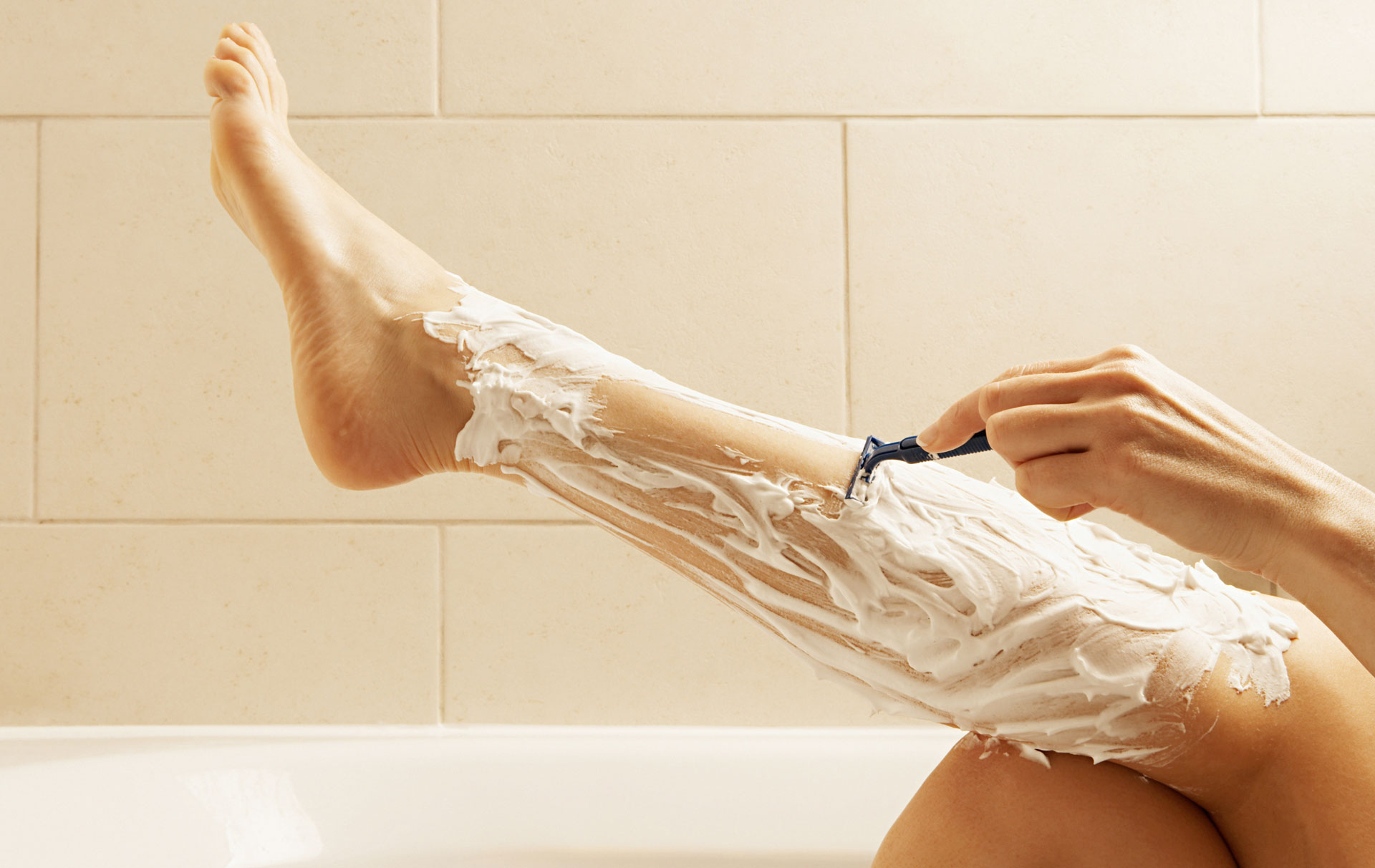
16. Slippers
Clean: As often as possible and replace every six months After a long day at work, there's no better feeling than taking off your shoes and relaxing in a comfy pair of slippers. But have you ever thought about how long your favourite pair of slippers have been lying around the house?
According to a guide by Brightside, warm slippers are the perfect place to spread a nasty fungal infection. To avoid damaging your feet, those old slippers should be thrown away every six months... which we think is the perfect excuse to buy a comfy new pair!
We're also all a bit guilty of forgetting to throw our slippers in the washing machine every now and again. But make sure you wash your slippers properly and as often as possible to help reduce the chance of an infection.
17. Office mug
Clean: Every day When you're busy at work, washing your mug is probably the last thing on your mind. And let's face it, we're all a bit guilty of leaving our dirty mugs a little bit too long or just giving it a quick rinse before refilling it for the fifth time.
But not washing your mugs regularly can have seriously negative effects for your health. According to Charles Gerba, a professor of environmental microbiology at the University of Arizona, around 90% of office mugs contain dangerous germs. But it gets worse. Charles also said 20% of those dirty mugs also contain faecal bacteria. Gross.
While this sounds really disgusting, bacteria doesn't occur on personal items in the office because you're around so many people. Charles added that office cleaning methods are also to blame, as communal sponges and brushes are not changed often enough. And with so many people using them, it's only natural that these germs will spread quickly.
But to make your office mugs much safer, Charles recommended taking your mug home as often as you can, most likely every day, and give it a wash it in the dishwasher. If your kitchen doesn't have a dishwasher, wash it in the office yourself with hot water soap and a clean paper towel.
18. Plastic water bottles
Clean: Couple of times then throw away
Reusing that plastic water bottle might be the easiest way to stay hydrated, but according to scientists you should bin them as they're completely riddled with germs! Treadmillreviews told the Metro that drinking water from a bottle that's already been used is as bad for you as licking your toilet. Nice.
The amount of bacteria found on the average reused water bottle can actually be higher than what's on your loo, thanks to the lack of washing, sweat and build-up that's created with every use - and they also found that 60% of the types of germs found on your bottles could actually make you ill.
A recent Canadian study also found that in a sample of water bottles used by school children, almost two-thirds had levels of bacteria over the limit for drinking water.
The scientists from this research believe it's the little ridges found in water bottle that can help germs multiply, while regular use can lead to food poisoning-type illnesses. It's even thought that regularly washing your water bottle can do more harm than good. If washed at a hot temperature, it can break down the chemicals in the plastic that then goes into your water.
Professor of pharmacology, Scott Belcher from the University of Cincinnati, told the Sun, "Heating will certainly increase the rate at which chemicals can migrate from the plastic".
But we know it seems silly and expensive to keep buying bottles of water just to throw them away. Even though drinking from the same plastic bottle all the time can be harmful, reusing it a handful of times is nothing to worry about. If you want to keep using the same bottle, there are special reusable bottles you can buy that are dishwasher safe and keep away the germs.
19. Jeans

Clean: Every six months (if at all!) Okay, so this may be extreme, but David Hieatt, founder of Hiut denim, says that the key to keeping your jeans in tip top condition is to avoid washing them for at least six months - to allow the colour of the denim to become bespoke to those who wear them.
"All the creases you make, creases that are unique to you. The way you sit, the way you keep your phone in your pocket... you rub off the indigo in certain places; it's a colour thing rather than a fitting thing," he explains.
David, who is also the founder of the 'No Wash Club', says "Some place them in the freezer to freshen them up while others leave them out to air. It's worth the effort if you can put up with the smell."
And David's not alone in his no-washing advocacy - last year, the CEO of Levi's revealed he'd never washed his year-old jeans, and while this seems like an awfully long time we must admit to being guilty of leaving jeans for longer than the rest of our wardrobe.
Microbiologists even say that there's no harm in never washing your jeans from a health perspective. Apparently the main bacteria that goes on the material are skin micro-organisms, which aren't usually hazardous unless you're working in an environment that needs to be sterile, like a hospital.
According to jeans designer Donna Ida, washing jeans after every five wears is enough to preserve their colour and fibres. "Wash on the cold setting - that's cold as in zero, not 30c", she says.
20. Gym leggings
Clean: Every two wears If you thought it was okay to reuse your gym leggings a few times before putting them in the wash, then we're afraid we have some bad news.
According to experts, two wears is the maximum you can allow yourself until you have to succumb to the washing machine. Josh Zeichner, director of cosmetic and clinical research in dermatology at Mt. Sinai Hospital, told Cosmopolitan that because leggings are so close to your skin, the oil and sweat produced during your workout makes it the perfect scenario for bacteria to thrive.
This means that not washing your gym leggings frequently could result in rashes, fungal infections and even vaginal yeast infections. Okay, okay, washing liquid at the ready!
However, the pros at Sweaty Betty added to the title that although they get dirty pretty fast, there's no need to wash your leggings at any higher than a 30 degree setting - better for your purse and the environment!
21. New clothes
Clean: Before you wear! They're straight out of the shop, so they must be clean, right? Wrong, according to Lana Hogue, a clothing manufacturing expert who says you should be washing any outfit you bring home from the stores before it gets its first wear - and it's not just because people have tried them on before you.
She explained to Elle, "You should absolutely wash clothes before you wear them. Especially anything that is right next to the skin or that you will sweat on. Almost every yarn or dyed fabric requires chemicals to make them, but unfortunately these can have nasty side effects when they come in contact with your skin.
"Most of the chemicals used in dyeing fabric and putting finishes on yarns that allow them to be processed through spinning equipment are known irritants' - so remember, off the rack doesn't mean ready to wear!"
22. Bras
Clean: Every two-three wears Good news for those of us with piles of laundry as high as the sky - our bras don't need to be washed after every wear.
Of course, if you've had a particularly sweaty afternoon then you might want to wash the odd bra after just one wear, but on average you don't need to wash them every day. This also keeps the shape nice, too, as over washing can quickly damage the elastic.
Kelly Dunmore, lingerie expert for Rigby & Peller, says, "The crease in your bust and the area under your arms are hot, sweaty environments. Cleaning after every two wears, possibly three, is ideal".
23. Tights
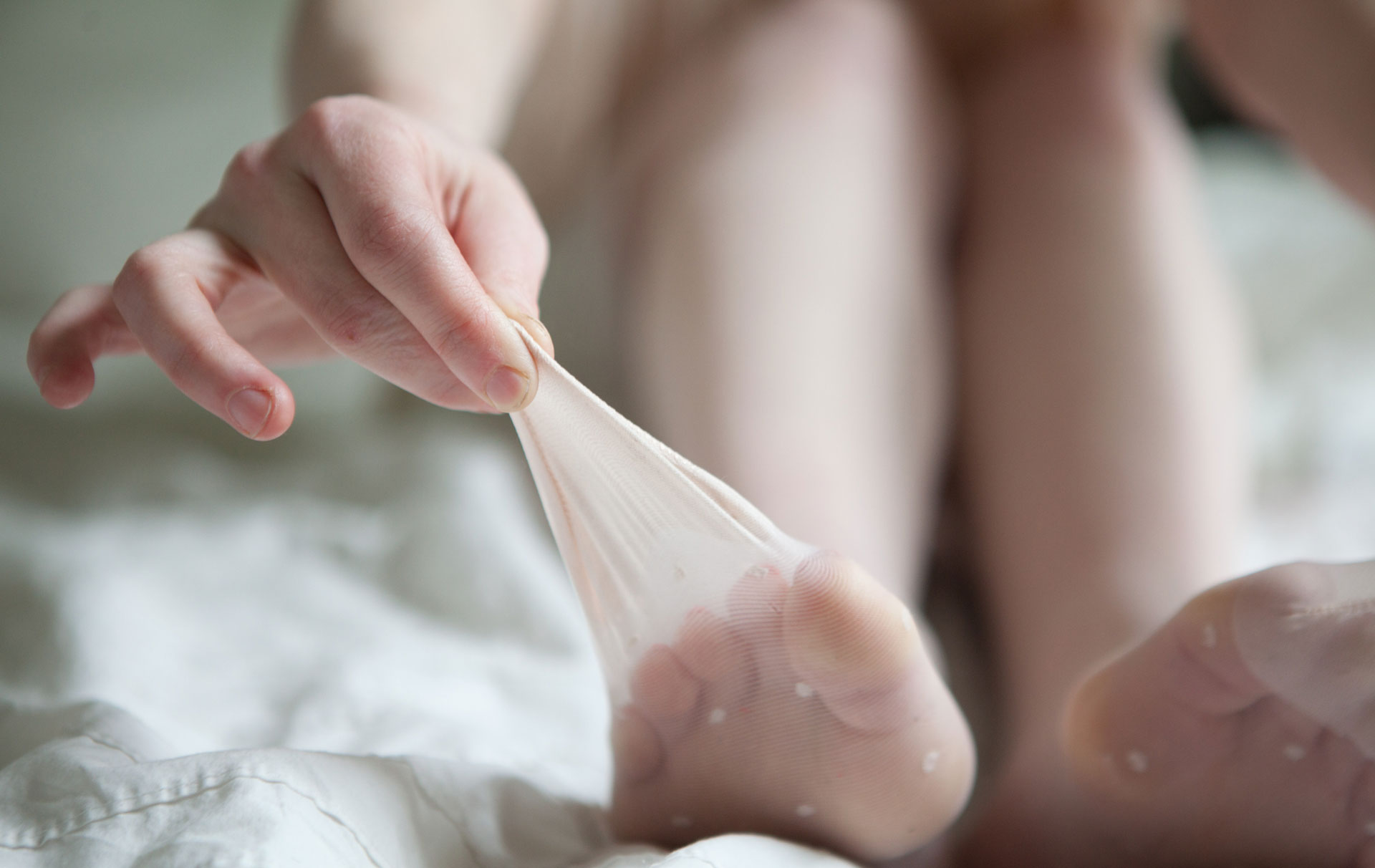
Clean: Every wear Come on, own up - have you ever recycled a pair of tights for a second-day wear? If you answered yes, here's why you shouldn't do it again! According to research, because tights are made from non-breathable material, they're an ideal breeding ground for bacteria, putting you at risk of urinary tracts infections and yeast infections.
Dr Radhika Rible of UCLA Medical Center in Los Angeles told Everyday Health that tights can also increase foot sweating and contribute to fungal infections like athlete's foot - eek! Time to do a tights wash, we think...
24. Pyjamas
Clean: Every two wears A recent study found that many of us wear the same set of pyjamas for up to two weeks or more, and as we sweat a lot in our sleep, not washing your pjs regularly can lead to a nasty amount of bacteria.
"Sleeping with a hot water bottle in winter and thick pyjamas will only make you sweat more" says Kelly, lingerie expert for Rigby & Peller. We also lose dead skin cells in bed, and these can be left on your pyjamas - gross! To keep the grime at bay, wash your nightwear after every two wears, or at the very least, once a week.
25. Toothbrushes
Ditch: Every month This may seem a tad extreme (especially when we consider how long our own toothbrush might have been sitting in our toothbrush holder at home) but according to Dr Amer Saeed, clinical director of Garden Square Dental in West London, many people hang on to their toothbrushes way longer than the recommended 30 days.
"They usually wait until the bristles start to splay - which means the brush is less capable of removing plaque and may damage the gums. But dental experts recommend manual and electric brushes should be changed once a month if you suffer with bleeding gums and after three months in any case.
"Although you may not be able to see any damage - a combination of wear and tear and poor brush maintenance can cause a huge build up of bacteria which can lead to contamination of the gums and possible infection."
To give your toothbrush a daily clean after it's done its job on your teeth, run it under warm water and a bit of mouthwash.
26. Purse/Wallet
Clean: Once a week We bet you never considered that your purse needed a wash, especially once a week, but according to Hoover tests have shown that purses and wallets sometimes carry E.coli and other nasty germs (well, it's no wonder when you consider how often it's handled). Don't worry, we're not suggesting you throw your new purse in the washing machine and ruin it, alcohol-free baby wipes can be used on leather and you can hand wash cotton materials.
27. Phones

Clean: Every day Scientists in America discovered 7,000 types of bacteria on 51 phone samples and although most are harmless, some are not. Laura Bowater explained to Mail Online why you should clean your phone everyday with an antibacterial wipe, "When you use your phone it heats up, providing the perfect conditions for bacteria to multiply."
Video of the Week